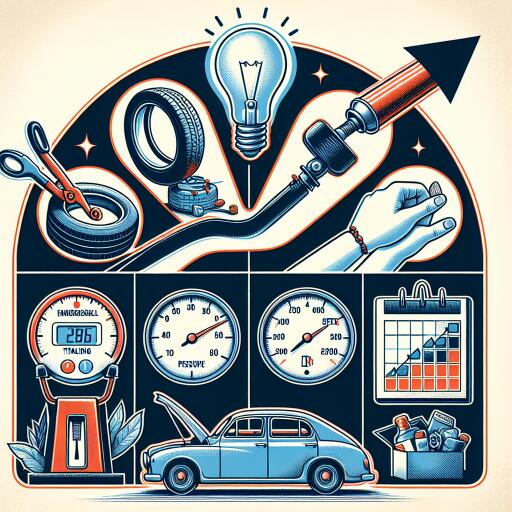Top 5 Tips to Save Money on Fuel as Petrol Prices Rise by 10p Per Litre
With the cost of petrol and diesel surging once again, impacting millions of drivers around the globe, learning how to economize on fuel has never been more vital. The RAC reports a startling 10p per litre rise in petrol prices this year, marking a significant uptick that has broadened the financial strain for vehicle owners.
The situation appears equally grim for diesel drivers who face what has been described as “serious overcharging.” April saw an average increase of 2p per litre, pushing the price to 157.8p. Consequently, the cost of filling a standard 55-litre family car has swelled by approximately £5.50, spotlighting the urgent need for cost-saving measures.
To counteract these rising expenses, here are expert-endorsed strategies for minimizing fuel consumption and saving money:
1. Maintain Proper Tyre Pressure
Keeping your tyres properly inflated is crucial for enhancing vehicle efficiency. Tyres that are under-inflated can significantly lower your mileage and lead to increased fuel usage. Experts recommend checking your tyre pressure at least once a month to ensure optimal performance, safety, and longevity of your tyres.
2. Be Aerodynamic
At high speeds, it’s advisable to keep your windows closed to reduce aerodynamic drag. While the impact varies across different vehicle designs and driving situations, minimizing drag is essential for sustaining better fuel economy on the highway.
3. Use Air Conditioning Wisely
Interestingly, how you use air conditioning can affect fuel consumption. On entering your vehicle, momentarily lowering the windows to cool the interior before activating the air conditioning can reduce the cooling system’s effort, thereby conserving fuel. Switching to air conditioning is more fuel-efficient at speeds over 40mph.
4. Avoid Idling
An idling engine is a wasteful engine, burning fuel but going nowhere and unnecessarily wearing down engine components. Turning off your engine during lengthy stops can help conserve fuel and extend your vehicle’s lifespan.
5. Lighten Your Load
Cutting down on excess weight can significantly improve your vehicle’s fuel efficiency. Assess what you’re carrying and eliminate unnecessary items to enhance your miles per gallon.
Experts have voiced concerns over retailer margins, with unleaded petrol margins hitting 9.5p per litre and diesel even more shockingly at 18p per litre. These elevated margins raise running costs for consumers and businesses alike, spotlighting the need for fairer pricing practices within the industry.
Fuel price variability further complicates consumer budgeting, with the gap between the cheapest and most expensive fuels widening. At the end of April, this disparity in supermarket fuel prices ranged from 8p to 36p per litre, underscoring the urgent need for regulatory measures to address these extreme price differences.
As prices continue to fluctuate, reflecting on trends can provide insights. This year’s lowest prices were recorded on January 16, with petrol at 139.7p per litre and diesel at 147.6p per litre. The significant climb from these rates to current levels highlights the volatile nature of the fuel market and its direct effect on consumers.
In a landscape of escalating fuel prices, adopting these expert tips can help drivers manage their fuel consumption more effectively, easing the financial burden of keeping their vehicles running.
